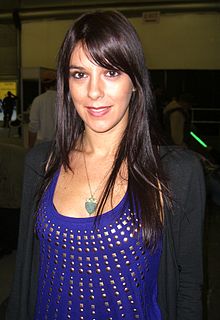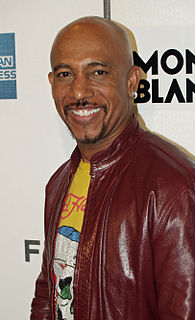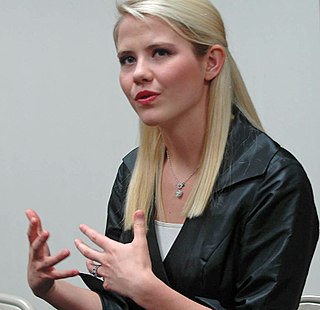A Quote by Chris Abani
The truth is that History, with its imposing capital H, is simply the amalgamation of many quotidian lives lived in very ordinary ways. History is always personal. If you read Holocaust survivor or American slavery survivor narratives, you realize all too well that these great Historical moments were personal to someone at some time.
Related Quotes
I think comedy allows people to accept the more difficult parts of history. And history, if it's presented wrong, is just very depressing, particularly the history of slavery. If slavery is presented properly, it's a great story. But I think that within the commercial world of storytelling in which I live, there haven't been many strong works that discuss slavery in ways that are palatable and funny and interesting to the reader.
My grandfather was a Holocaust survivor and his life and history were very formative to myself and my family. The almost unimaginable dichotomy between the different eras of his life always crushed my brain on some level. That this guy who was shoveling carob chips out of a barrel and restocking yogurt popsicles could also have those numbers on his arm. It was an inconceivable juxtaposition. His experience was the main window for our family into any kind of social consciousness, or sense of history, or politics, even though a lot of it went unsaid.
We normally think of history as one catastrophe after another, war followed by war, outrage by outrage - almost as if history were nothing more than all the narratives of human pain, assembled in sequence. And surely this is, often enough, an adequate description. But history is also the narratives of grace, the recountings of those blessed and inexplicable moments when someone did something for someone else, saved a life, bestowed a gift, gave something beyond what was required by circumstance.
There's a book that I read, really a great book - it's called 'Lone Survivor' and I think they're trying to make it into a movie. I would love to play Marcus Luttrell, who was the author and the 'lone survivor.' He's a national hero; he's very courageous and heroic in insurmountable danger, so it's something I'd love to explore.
Muslims naturally saw Christendom as their arch rival. One point that is really important to bear in mind, particularly in addressing an American audience, and that is that the Islamic world has a very strong sense of history. In the Muslim world, history is important and their knowledge of history is not always accurate but is very detailed. There is a strong historical sense in the Muslim world, a feeling for the history of Islam from the time of the Prophet until the present day.
I have always been interested in mythology and history. The more I read, the more I realized that there have always been people at the edges of history that we know very little about. I wanted to use them in a story and bring them back into the public's consciousness. Similarly with mythology: everyone knows some of the Greek or Roman legends, and maybe some of the Egyptian or Norse stories too, but what about the other great mythologies: the Celtic, Chinese, Native American?
I've always been interested in history, but they never taught Negro history in the public schools...I don't see how a history of the United States can be written honestly without including the Negro. I didn't [paint] just as a historical thing, but because I believe these things tie up with the Negro today. We don't have a physical slavery, but an economic slavery. If these people, who were so much worse off than the people today, could conquer their slavery, we can certainly do the same thing....I am not a politician. I'm an artist, just trying to do my part to bring this thing about.
I have to throw in on a personal note that I didn't like history when I was in high school. I didn't study history when I was in college, none at all, and only started to do graduate study when my children were going to graduate school. What first intrigued me was this desire to understand my family and put it in the context of American history. That makes history so appealing and so central to what I am trying to do.



































